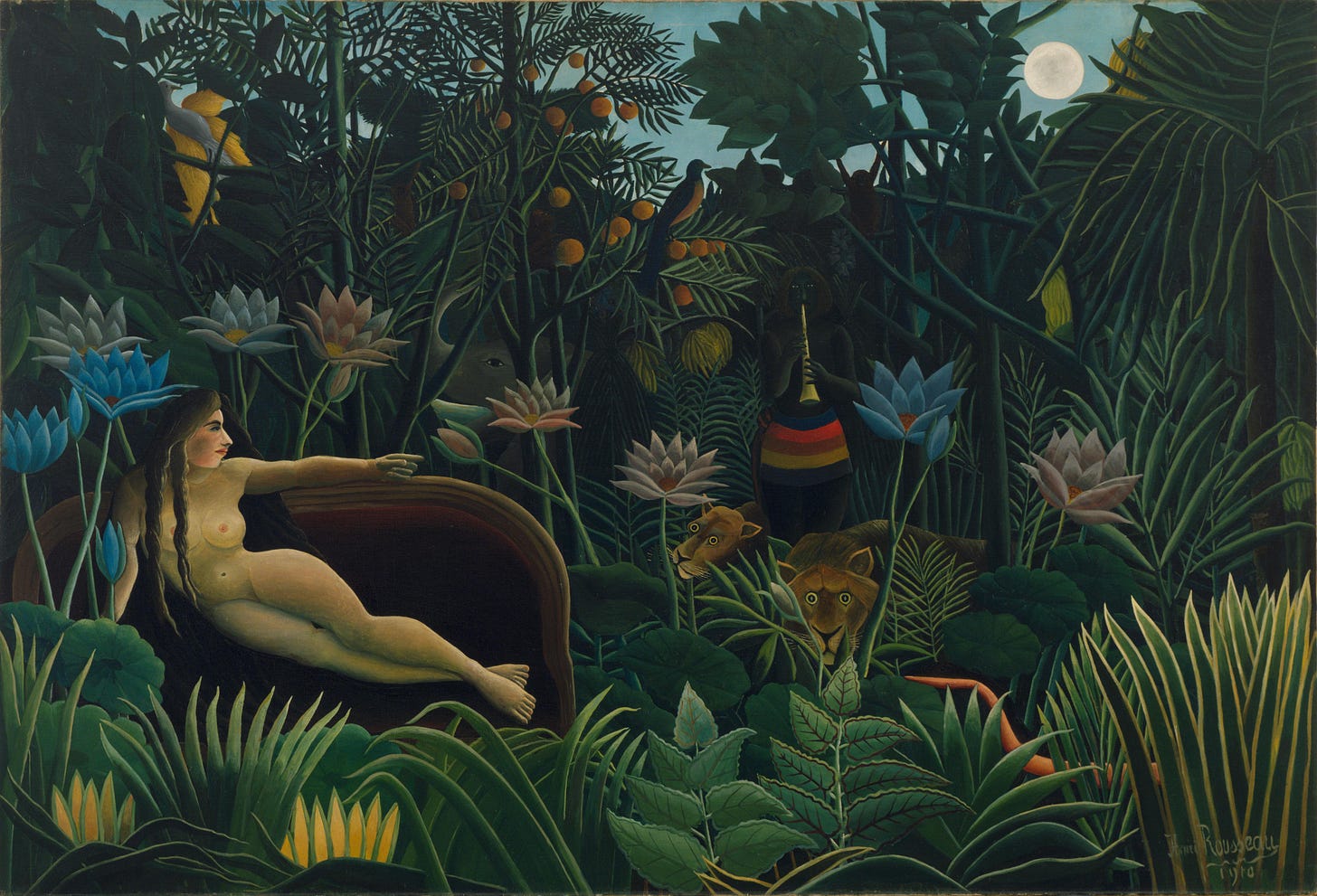The essential life processes of our physical bodies — growth, respiration, digestion, metabolism, excretion (reproduction may be more fun than laughing, but technically it’s not essential, at least not at the personal level) — are a bustling conglomeration of interdependent activities designed to maintain a certain relative level of homeostatic constancy necessary for the body’s survival in its ever-changing, oftentimes harsh, physical environment.
The same rules apply for the inner life of the mind: moment by moment, we mentally intake events in our experience, mentally digest them, mentally process them, and mentally excrete them. If everything’s going fine and dandy, we do this in a healthy and successful manner. When the life processes of our body and mind are in balance, when there’s good energy flow between these yin and yang aspects of our experience, we can be said to be living a happy and satisfied life.
Carl Jung believed that dreams are self-portraits of our psyche’s life processes. If we’re psychogenically constipated (i.e., we have a personal issue that’s unresolved), if we have something stuck in our psyche's digestive tract, our unconscious will use the rich colors of its creative dream palette, and its creative dream mechanisms, to bring that issue to our attention so we can clear out the blockage, the same way our body might react with stomach pain after we’ve eaten some bad brie.
The Role of Dreams
In my view, dreams are the most important source of insight into our unconscious essential life processes. Doing dream work is like taking care of your inner life the same way you take care of your body with a good diet and exercise.
Every night, there’s a dream that’s all about you playing in the theatre of your mind. And you have a front-row seat. True, the imagery on the dream screen can often be as confounding as a Tarkovsky movie to interpret, but why wouldn’t you be interested in this facet of your existence? Every single night, night after night, a new feature is unspooled and projected on your dreamscreen that’s designed to show you how you can work through the most pressing issues in your life — and it often does this in the most entertainingly Dada and Surrealist ways. How cool is that? Someone oughta sell tickets.
I’m thoroughly convinced that dreamwork is absolutely essential to living a deeper and more meaningful and satisfying life. The more awareness we bring to our dream process, the more we’ll be working to understand our unconscious impulses — our fears, anxieties, triggers, and so forth — and the better we’ll be able to work them out.
And, Hey
Even if you’re doing pretty good, even if you’re an all-around super duper happy camper, healthy in mind, body, and spirit, dreams can still be used as a fertile testing ground for your Future Self. You can cultivate seeds of creativity, go on wild space explorations, practice guitar solos (I do this all the dreamtime)— whatever your imagination desires.
Dreamwork is, in my mind, an essential life process, no matter what your psychological makeup. No matter where your mind-body chariot happens to be traveling along this wacky motorway we call life, there’s a whole movie just waiting to be discovered right behind your rapidly moving eyeballs.

This Precious Jewel
Dreamwork acts as a bridge between the language of our inner world, of our thoughts, images, and instincts, and our so-called rational conscious experience. Working with our dreamlife is a way of letting our unconscious know that we’re consciously engaging with it, that we’re ready to develop a healthy flow between it and our conscious state, that we’re taking the essential life processes of our inner life seriously.
We all know that if your body is unwell (e.g., you have a headache or cold) your mood is also going to be negatively affected; and if your mind is disturbed in some way (e.g., you’re depressed or stressed out), your body will be psychosomatically effected correspondingly. But when that conscious-unconscious flow is naturally unimpeded, we become more stable, and from that stability a more mature and “together” personality can evolve. A new self-awareness, less anxious, less bored, happier and more content, can express itself more easily.
Dreamwork isn’t necessarily a bunch of grand realizations or life-changing insights. In fact, there’s a subtlety to dreamwork that starts to emerge once you start keeping track of your dreams on a daily basis that shows how it’s the little things that can make your day or provide some insight and love into a situation.
Dream of My Father
My father passed away thirteen years ago last month. Although we certainly had our issues when I was a wild and rebellious teenager (and that’s putting it mildly), we got to know each other better and become friends when I was an adult. And so it was that I had a dream of him last Father’s Day. I was riding in his car. We were both 25. He took me to a beautiful beach and we sat and looked out at the heavenly vista. “This is where I live now,” he said.
That dream filled me with such great happiness and warmth, and also inspired a wonderful short story. It was a very true and very real expression of the current depths of feelings I have for my father who, I’ve come to realize, did far more than I ever realized when I was growing up to help my creative dreams come true, despite the power of our differences at the time.
Dreams are the most direct and fun way to discover the hidden aspects of our inner selves, a self that hides like a precious jewel in the dark jungle of our unconscious. All of what we might call the juicy stuff of life — all our fears, lusts, desires, unfinished business, fantasies, memories, future plans — lurk about in this jungle, waiting to be explored, waiting to be expressed, waiting to be fully digested.






